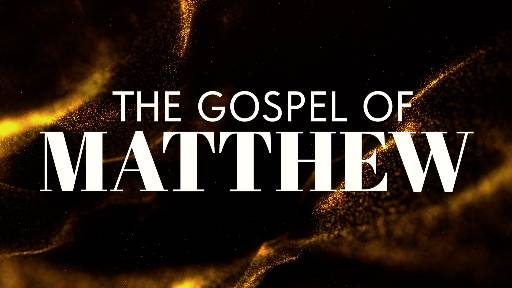-
For The Things We Have Left Undone
Contributed by Lori Broschat on Nov 28, 2017 (message contributor)
Summary: The importance of Jesus' parable of the sheep and the goats
FOR THE THINGS WE HAVE LEFT UNDONE
In my life I suffer from the sin of procrastination and along with that the tendency to forget; whether it’s somewhere I was supposed to be, or something I said I would do. I receive emails from people asking me if I have sent them some document or other, or texts asking me where I am. I fear it will grow worse the older I get. I can lose objects rather quickly, sometimes even when they are in plain sight. All of these problems serve to remind me of the prayer of general confession of the Anglican Church.
The first part of the prayer is this: “Almighty and most merciful Father; we have erred, and strayed from your ways like lost sheep. We have followed too much the devices and desires of our own hearts. We have offended against your holy laws. We have left undone those things which we ought to have done; and we have done those things which we ought not to have done; and there is no health in us.”
Have you ever felt guilty of such a confession? When you arrive at the end of the day and look back on what you have accomplished, are you shocked at what you have indeed left undone? In some ways they say it’s healthy to let some things go, to pick up where you left off or risk overstressing yourself. Yet there are those things we should be doing or those we should stop doing in order to avoid the last phrase in that prayer, “And there is no health in us.”
The author was not speaking of ulcers or hypertension; he was speaking spiritually. We are sometimes a very sick people in our lack of spiritual growth or direction. I’m not criticizing you, I speak first for myself. Often the regrets I have over what I have forgotten to do are not always tangible. Often I remember that I have forgotten the will of God.
The subject of our gospel reading today is judgment, not a word many of us are comfortable hearing, particularly not with regard to finality, an issue of separation from God. How ironic this parable is, for it speaks of those times we willingly separate ourselves from God. In this parable Jesus was describing His own coming action. This was more than a parable; this is a glimpse of the future. Jesus referred to Himself as both the Son of Man and the King who sits on a great throne, dividing the people of the world into two categories; sheep and goats.
The decision between these two groups will be based on one quality – compassion. Not knowledge of Scripture, not tithing, not prayer, not even knowledge of the result of their actions, but obedience to the commandment to love one another. Showing care, hospitality, kindness, empathy, and mercy to others; that’s what pleases Christ and fulfills His law. Now, some would like to argue this constitutes earning salvation through works, but not when we emphatically stress one key point.
Neither those who did or did not show compassion had any idea they were doing or failing to do these things for Jesus, nor did they apparently have any motivation to do so. Think about how many of these actions we fail to do for Jesus. Does knowing that the significance of not doing something is equal to the significance of doing something for Jesus make you want to go out and do more? No doubt we feel a twinge of guilt from this passage, but that’s not the point.
The point is that when we have a saving relationship with Christ and He is invited to have complete access to us, His transforming grace makes us into the kind of people who simply have to do these acts of kindness for others. Jesus is our example, but He is also our source of ability, our source of power.
Power is nothing unless you intend to use it, and for something other than yourself. You see, this power is meant to be used collectively, as the body of Christ, who is the head of the church. We are His fullness, He who fills all. We are to be filled with Christ individually so that the church may be the fullness of Him. A healthy and whole church has Christ as the head, directing and empowering.
We know the church in society is in decline but what we may not realize is that fear, guilt, cultural pressure or attendance campaigns will not work in the long run to create sincere relationships with Christ. Jesus said that what will work is helping people where they hurt. The greatest mistake the church has made in recent years is not noticing the hurts of the people on the side of the road. We get so busy going to our meetings and activities we do not have time to stop. The irony is that, by that very act, the church is dying.

 Sermon Central
Sermon Central

